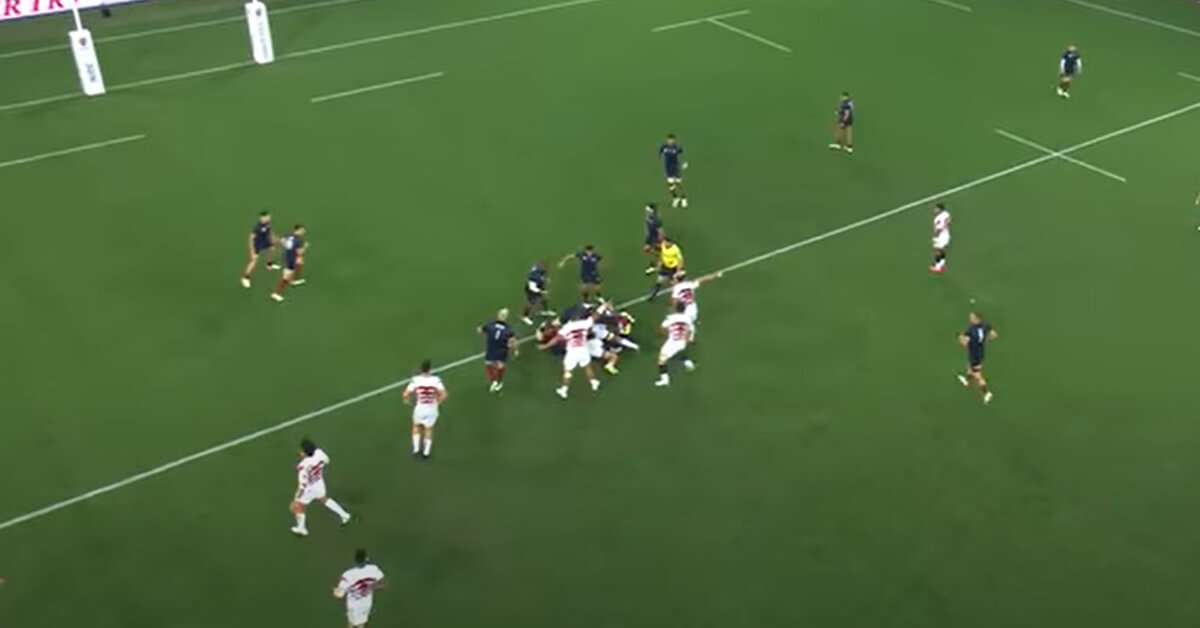Since 2019, not much has changed in the basics of South Africa’s game. They have always relied on brute force, a strong set piece, and a reliable kicking game, but in recent years they have also developed the ability to advance the ball while the defense of their opponent is struggling. That’s why they’re such an antagonistic force to face.
They’ve honed their ability to read the game and know when to make a pass based on the ball’s speed or a transition. Their back three have been making a greater impact with the ball in hand than they have in the past as kick chasers who run their channels. What they’ve built up on the inside with their power game is incredible, and they know just when to pass the ball.
Equally amazing is the team’s skill at refocusing the game on its strengths and bringing it back to its roots whenever it strays too far from its original identity. In their semifinal victory over France, we witnessed a game that at times resembled a basketball contest; this style may not be best suited to South Africa. This explains why, right after halftime, Manie Libbok and Damian Willemse were swapped out for Handré Pollard and Willie le Roux. The Springboks got to enjoy the kind of brutal scrap that saw Deon Fourie and Kwagga Smith come in to slow down France’s ball.
But England can certainly learn from the experiences of other countries. Winning will come down to making the right plays at the appropriate times, but I think this match will be much tighter than most people anticipate. The physical contest, the aerial competition, and the ability to seize opportunities quickly will be crucial.
In terms of the basics, England is on par with South Africa. They’ve been much better at defending since their preseason campaign (Kevin Sinfield has done a fantastic job of leading the charge there), but they still need to be more physical. South Africa typically advances the ball with brute force, while a well-drilled side like Ireland advances it through precision and manipulation of defenders. Sometimes it feels like a test of me against you. Preventing the Springboks from gaining ground through their power game is crucial to defeating them.
Understanding how to defend against South Africa’s kicking game is also essential. The strategy they used in their first three attempts resulted in losses to France in the air war. They attacked the wingers by putting up high balls, competing, and making transitions, all of which helped them succeed. It’s likely that England will face a lot of stuff in the middle of the field, so they need prepare for it. A major step toward neutralizing the threat would be if they could successfully set up uncontested catches by lawfully forming the cradle surrounding the catch, and then endure South Africa at the catch-receipt ruck. And they have no choice but to risk it. Against the Springboks, France demonstrated what is possible if you can acquire speed of ball and shuffle their massive pack around. It’s likely that England will try to follow suit.

